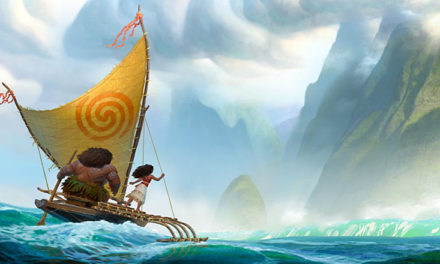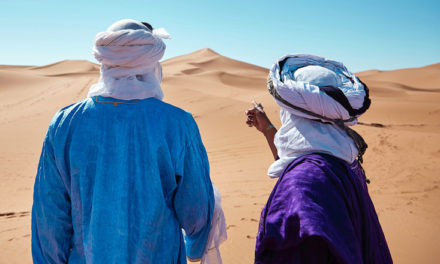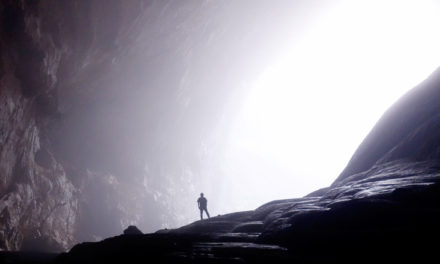Joining The Faith
Nga mihi ki te hunga e whai ana i to rātou whainga… (Greetings to everyone who is pursuing their purpose),
This post is also available in article format here: https://jaymatenga.com/pdfs/MatengaJ_JoiningFaith.pdf.
The text for this post is Hosea 2:23 (NLT), “At that time I will plant a crop of Israelites and raise them for myself. I will show love to those I called ‘Not loved.’ And to those I called ‘Not my people,’ I will say, ‘Now you are my people.’ And they will reply, ‘You are our God!’”
INTRODUCTION
Can people take Jesus but not Christian tradition?
The prompt for this latest reflection arose out of her work with Aboriginal elders who follow Jesus, and their relationship with wider Christianity. Māori and Aboriginal peoples each live in lands that had nation states imposed upon them as English colonies developed. Sadly, people from Aboriginal countries fared far worse than iwi Māori (Māori tribes) under colonialism, and in Australia our Aboriginal cousins still lack the acknowledgement and socio-political powers that Māori have won here in Aotearoa New Zealand (and our situation still leaves a lot to be desired!). No wonder that there is reluctance by some Aboriginal and Māori Jesus followers to fully buy into the history and assumptions of a European Christianity that has caused them so much harm. The issue at hand in this reflection is, can people take Jesus but not Christian tradition (European or otherwise)? Can you accept Jesus and not feel the need to adopt the Judeo-Christian religious history contained in the Bible and subsequent development by the early Church? These are serious questions for indigenous people who have well-remembered accounts of a relationship with the Creator that is at least as long, if not longer, than the biblical record.
Pantheons of local deities, spiritual beings, and ancestors aside, many indigenous elders might say that their people have always had knowledge of God’s Spirit at work in the world, with indigenous followers of Jesus recognising Him as the incarnate manifestation of the Creator they’ve always known, usually in a positive way. In my tradition, the pantheon is much more volatile than the Creator who, until Jesus, may have seemed more distant and too holy to approach beyond discerning some activity of the Creator’s spirit. Some indigenous people claim their people have traditionally communed with God’s Spirit, but that is a discussion for another time. When Jesus is explained as the incarnation of the Creator it is relatively easy for indigenous people to accept, especially if they see evidence of prayer in Jesus’ name being more efficacious than traditional incantations to intercessory spiritual beings. When told, however, that they need to accept Jesus’ heritage and the decisions of His followers down through the ages as well, that can be less palatable. It comes with ethical implications and moral complications, even more so if what is being required includes embracing the Eurocentric theological consensus of their colonisers (which I do not believe is necessary).
What I seek to explore here is how we as “Gentiles” are to understand our relationship with the historic Israel and the Christian Bible. Is it necessary to relate to Israel and the Bible at all? If so, why? As I explore that issue below, I will admit to being biased in that I hold to the authority of the Bible as the great arbiter of such questions. Without the traditionally agreed-upon canon of Christian Scripture we have no rudder to guide us, no means to validate what the Spirit may (or may not) be saying. I do not accept the so-called ‘plain reading’ of Scripture though. I believe it needs to be studiously handled by wise teachers, with a robust hermeneutic that holds together the entire narrative arc, and then carefully applied.
The Bible is the only way I can provide an answer for those who would seek to follow Jesus with authenticity… rather than a Christ of our own creation.
Perhaps my commitment to Christian Scripture immediately invalidates my reasoning as a circular argument for some. But I am not setting out to convert anyone. I am seeking to inform the converted. Each to their own and fruit will grow accordingly. Accepting the authority of the Bible is the only way I can provide an answer for those who would seek to follow Jesus with an authenticity drawn from what is recorded about Him and what he reportedly said of himself, rather than a Christ of our own creation. With that caveat applied, let us continue.
NOT MY PEOPLE
When Hosea recorded his prophesy in the 8th century before Christ, the “crop of Israelites” could not be conceived as anything other than the faithful remnant of the tribes grown from ancestors Abraham, Isaac, and Jacob. The entire context of this verse is God wooing and winning back an unfaithful people with utter faithfulness and restorative goodness. Furthermore, the promise of the renewed relationship carries eschatological overtones, where all of creation is reordered to be a safe and satiating place for God’s people to dwell in God’s loving presence. To which, the response of God’s people will follow that of the crops nurtured by a responsive earth, “Jezreel! God plants!” (Hosea 2:22 NLT)
When we read Romans 9:25, however, the Apostle Paul has radically reinterpreted this passage. Scandalously and in no uncertain terms, Paul declares that Gentiles faithful to God in Jesus Christ are the “crop of Israelites” to whom God was referring through Hosea. The basis for this claim is related to his later statement that “some of these branches from Abraham’s tree—some of the people of Israel—have been broken off. And you Gentiles, who were branches from a wild olive tree, have been grafted in. So now you also receive the blessing God has promised Abraham and his children, sharing in the rich nourishment from the root of God’s special olive tree. (Romans 11:17 NLT)
(Biblical metaphors) are mere approximations of eternal reality, drawn from human experience, to help our comprehension of a much deeper, more enduring understanding of how to obtain new life.
The New Testament utilises numerous metaphors to explain this phenomenon made possible only by Jesus’ suffering, death, resurrection, and sending/indwelling of the Holy Spirit that is activated by belief in and allegiance to Him. Jesus himself used metaphors like: a mustard seed from which a large tree would become a habitation for the nations, such in Ezekiel’s vision; yeast which will permeate the nations; a field of wheat/weeds representing the entire world that will eventually be sorted; a net catching fish representing the nations; a wedding feast into which the outsiders were invited; a vine onto which new branches are grafted and thrive so long as they abide. The writers of the epistles borrowed heavily from the realm of family with adoption central to understanding how the Gentiles participate in faith; weddings motifs are also used; the creation of one community out of many nations is another theme; and we’ve already seen Paul’s metaphor of grafting trees applied. All of these are mere approximations of eternal reality, drawn from human experience, to help our comprehension of a much deeper, more enduring understanding of how to obtain new life… what it means to be in. Christ.
To repair and protect the universe, one must repair and strengthen all manner of relationships.
My doctoral work included an ethnographic study of the way Māori experience and value relationships, especially how relationships are formed and maintained, known as whanaungatanga, somewhat similar to the Bantu concept of Ubuntu. The prompt for my research is rooted in the work of the late Reverend Māori Marsden, an expert in both traditional Māori and biblically-faithful Christian cosmovisions (understandings of reality). Drawing on his Māori cosmovision, Rev. Marsden understood the seen and unseen universe to exist as a tight weave of relationships. Dysfunction experienced in our lives, then, is both the result and the cause of rips in the fabric of the universe. In the tradition of Māori religious leaders, he perceived that we live in a torn universe. To repair and protect the universe, one must repair and strengthen all manner of relationships—between people, people and the environment, people and the spiritual reality around us. Harmony must be carefully maintained and, in the ways of traditional Māori religion, elaborate religious rituals, incantations, and appeasement of spiritual beings helped do that.
Like the law that the Israelites were required to follow, Māori had our own way of walking safely in the world, which needed to be closely observed lest calamity befall the people. So potent is the understanding of spiritual danger by the people of Moana nui a Kiwa (the Pacific Ocean) that our word for it has been adopted into the English language—tapu, transliterated as taboo. For Māori, tapu is not merely an elaborate moral code we need to abide by, it is a safety net that protects our very existence. We were therefore enslaved to the rites and rituals, incantations and offerings, for our own wellbeing. Like the Jewish remnant of Israel, “we were like children; we were slaves to the basic spiritual principles of this world.” (Galatians 4:3b NLT)
In an uncited statement attributed to him, Rev. Marsden said something like, “Before the missionaries came, we could see the mountain (spiritual reality), but the top of the mountain was shrouded in cloud (a mystery). When the missionaries came, translated and taught us the Scriptures, the cloud lifted off the mountain and we could see (understand) it in its fullness”. The implication of this statement is that we now have the entire picture. Thanks to the Christian Bible and the teaching of the missionaries, we can reinterpret with better understanding the parts we could traditionally see. At least, this is the case for those of us who cannot deny the power of Jesus. Those who do not accept the biblical Jesus will likely still see this as a colonial imposition. So be it. Read on.
So, what did our ancestors who chose to follow Jesus find at the top of the mountain once the cloud lifted? None other than the supremacy of Christ as Creator and Sustainer of all creation (cf. Colossians 1:15-20). Furthermore, we are invited to step out of one reality, as slaves to the law of tapu, and into another, to freedom as children and heirs of a holy family. Paul continues, “But when the right time came, God sent his Son, born of a woman, subject to the law. God sent him to buy freedom for us who were slaves to the law, so that he could adopt us as his very own children. And because we are his children, God has sent the Spirit of his Son into our hearts, prompting us to call out, ‘Abba, Father.’ Now you are no longer a slave but God’s own child. And since you are his child, God has made you His heir.” (Galatians 4:4-7 NLT)
YOU ARE MY PEOPLE
We no longer need to appease the powers that God has ordained to operate in Jesus’ good creation.. but… We do not dismiss, dishonour, or disparage them.
What does this freedom mean for Māori? Can we now flaunt every tapu and throw shade on the pantheon of our ancestors? I will reply as Paul often replied, “God forbid”! We no longer need to appease the powers that God has ordained to operate in Jesus’ good creation, whether benevolent or malevolent. If any spiritual being delves into human affairs to disrupt or destroy relationships, to do evil, we have delegated authority in-Christ to resist and rebuke those powers. But for the most part we leave them be. We do not dismiss, dishonour, or disparage them. As a Māori contextual theologian seeking to remain faithful to the historic record of Jesus and the Apostles, I find it an irony of ironies that in the decolonial process some Māori academics have clearly embraced the disenchantment of the secular world. These same professors argue for a Māori resurgence based on evidence-based scientific research. By taking this approach, they apparently do not see how colonised by Western Enlightenment rationalism they remain. By paying lip service to ngā atua (the gods) but not really believing such potent spiritual entities exist beyond myth and legend, they are fooling themselves and leading their followers dangerously astray.
No, we no longer need concern ourselves with the powers. The centre of our affections, our ‘ngākau’, is to be focused on Christ alone. By that we are protected better than we ever could be. Tapu prohibitions for our psychological, physical, social, and environmental wellbeing, however, can still be rightly observed, but with freedom from spiritual attachments because of our standing with Jesus and the power of the Holy Spirit within us. As Paul notes, “You say, ‘I am allowed to do anything’—but not everything is good for you. And even though ‘I am allowed to do anything,’ I must not become a slave to anything.” (1 Corinthians 6:12 NLT) Certain customary behaviours remain important for Māori, but no longer are ngā atua a factor in the observance of these things for Māori followers of Jesus and nor should they be. Yet there remains much in our customary way of life that is gospel-affirming—ways of being that can bear witness to the fact that our God reigns because they reflect the ethical expectations of the New Creation, which is summed up as loving-kindness (e.g. whānau, aroha, manaakitanga, awhi, and the like). As in all things, the Holy Spirit helps us to live according to those expectations, which will include honouring tapu where it is helpful for life and godliness. (cf. 2 Peter 1:3)
Whāngai is essentially a state of belonging, where one’s wellbeing is deeply nurtured. A whāngai is fed, clothed, educated, protected, included, and usually gifted with the full rights of one of the family.
One of the most surprising findings in my research with and for Māori followers of Jesus was how often whāngai was referenced as a relationship-forming concept and behaviour. At face value, whāngai means to foster a person, usually a child; but the meaning runs much deeper than that of a mere social service. A whāngai is most often a child (usually the oldest) bought up by a grandparent or other close relative. Many of the stories of whangai that I was privileged to record prompted fond memories of my own upbringing by my grandmother in the early years of my life. I intuitively understood the depth of meaning associated with this common form of relationship development for Māori. Whāngai is essentially a state of belonging, where one’s wellbeing is deeply nurtured. A whāngai is fed, clothed, educated, protected, included, and usually gifted with the full rights of one of the family. Māori don’t typically distinguish between fostering and adoption, where the Western world sees the former as somewhat temporary and the latter permanent and legally binding. Inclusion is inclusion. It is covenantal thinking. If a relationship is established, it is an eternally binding commitment.
Of course, when it comes to a child, the most common legally binding relational connection is with their father and mother. Māori associate this relationship with whakapapa. Whakapapa in its simplest manifestation is genealogy. Our whakapapa is our family history back through as many generations as we can recall. Māori families can have very long genealogies, but I suspect the size of our genealogies will pale in comparison to the thousands of years of genealogical memory held by some Australian Aboriginal elders! It would go without saying that a whangai becomes part of the whakapapa of their adoptive family, even if there is no physical blood or genetic connection. Whangai is even possible for a person from outside our ethnicity.
Whakapapa… that of two entities coming together to create a unique third.
The core concept of whakapapa, however, is that of creation. The creation of family, to be sure, but in our Māori cosmovision it is a concept that applies to the entire generative universe, seen and unseen. The basic principle is that of two entities coming together to create a unique third. It is through this lens that I read Paul’s statements about the Gentiles joining the faith of the Jews. Where there was enmity between Israel and the nations, Jesus came and removed it. To the Ephesians Paul put it this way, “For Christ himself has brought peace to us. He united Jews and Gentiles into one people when, in his own body on the cross, he broke down the wall of hostility that separated us. He did this by ending the system of law with its commandments and regulations. He made peace between Jews and Gentiles by creating in himself one new people from the two groups.” (Ephesians 3:14-15 NLT) From two groups, one new people. All citizens of a new reality. The whakapapa of the New Creation.
YOU ARE OUR GOD
For all the contemporary contention around Israel and Palestine, Māori Christians cannot dismiss the whakapapa of the Jews and their indigenous connection to the promised land according to the biblical historic record. Our faith depends on that heritage. That does not condone the grossly unjust, extreme, and internationally illegal actions of Israel’s current political iteration, but we honour the descendants of Abraham, Isaac, and Jacob because they will forever be indigenous to our faith. Paul is adamant concerning this. They are the tree; we are the graft. They are the indigenous; we are the settlers. That said, Paul also makes clear in Romans that biblical Israel’s full rights as indigenous inheritors of the covenant is dependent upon acceptance of and allegiance to the risen King Jesus of Nazareth as their promised messiah, by whose blood the covenant was renewed. Such dependence applies to us all. That is the key to the kingdom, the only way to access New Creation.
Any Christ disembodied from the culture into which Jesus was born has no salvific value.
There is no acceptance of Jesus without the genealogy of Jesus and the biblical narrative that makes the story of that genealogy available to us. Any Christ disembodied from the culture into which Jesus was born has no salvific value because such a Christ is not the anointed one that God has incarnated. Jesus, born of the virgin Mary in Bethlehem of the province of Judah, of the line of David, son of Abraham, Isaac, and Jacob, is the chosen one, God enfleshed. That same Jesus was crucified, dead, and buried yet rose on the third day as the forerunner of our own resurrection and the first fruits of the New Creation. He alone is the one who fulfilled the law and rose with authority to make the Holy Spirit of God available to all who would believe in Him, the fully enculturated human and the fully embodied God. This is the only Jesus who can liberate us from slavery to the rule of law and the condemnation that comes from us failing to live up to its standards. Biblically, that refers to God’s law, but every human culture has laws and moral expectations that can be similarly difficult to keep. In Jesus, as Paul declares, “there is no condemnation for those who belong to Christ Jesus”. (Romans 8:1 NLT) and again, “If God is for us, who can ever be against us?” (Romans 8:31 NLT), certainly no punitive spiritual power.
Can we have Jesus without the Bible? No.
Can we have Jesus without the Bible? No. Because to know Jesus is to know the culture and narrative history into which he was born, and to know that you need to know the Bible. God’s purposes for humanity are only revealed there, there is no other history as authoritative in any other culture because the covenant was only made with Abraham. Jesus can only be understood according to the Bible’s overarching narrative, from the good and perfect creation, then a rebellious corruption, to a chosen solution (through Abraham), the history of one nation as an example to all nations, fulfilment in an heir of that unbroken lineage and the recipient of the promise made to the founding father, which Jesus makes available to believing Jews and also us, who whangai into the inheritance via His blood. The history of people who are not the people of Israel is not diminished in Christ Jesus, but our acceptance of Him means our acceptance of His heritage too. We become people with a blended past, one spiritual, the other physical. The history of Israel and the teaching of the Apostles and early Church need to be woven into the history of those who follow Christ, retrospectively applied as part of our adoption/grafting process. We cannot have Jesus without Jesus’ backstory.
But we CAN have Jesus. That is the good news! By accepting Jesus, we can say with Israel “You are our God!” (Hosea 2:23) We can enjoy liberty from the condemnation of spiritual legal systems with all the accompanying (now and not yet) consequences for those who offend. We can find our purpose in the purpose of God for all creation. We can enjoy the confidence of an eternal life, starting right now, where we get to invest and grow all that we are, our creative gifts, talents, strengths, attributes, personality, in complete fulfilment of our every yearning—which, I would argue, drawing on the latest scientific evidence, is genetically coded into us by our forebears and influenced by our cultural environment.
Each of us flourishing in our own unique ways as we co-create New Creation in the presence of the eternal Emmanuel, God with us.
We can declare “Jezreel! God plants!” (Hosea 2:22 NLT) because we become the planting of the Lord, “like great oaks that the LORD has planted for his own glory.” (Isaiah 61:3b NLT) Each of us flourishing in our own unique ways as we co-create New Creation together in the presence of the eternal Emmanuel, God with us. This has always been God’s purpose for humanity. Traditional indigenous commitments to care for creation, in intimate relationship with all elements of the world (physical and spiritual), can broaden our understanding of what it means to co-create New Creation with Christ. I have written about this elsewhere (see indigenous epistemology articles here: https://jaymatenga.com/jaysarticles/). Suffice it to say, we need to work together to develop a much better theology of creation than currently exists in the Western Christian heritage. But indigenous followers of Jesus cannot ignore the heritage of global Christianity or think that the history and authority of the Bible is not pertinent to us. If we choose to follow Jesus, we must receive and honour His family history as well. For only there, in Him, can we understand our own destiny (past and future).
CONCLUSION
This subject matter is of importance to me because in my context, where Māori are enjoying a renaissance of language and culture, some are wanting to revive traditional religious rites, rituals, and incantations as well. Caught up in the decolonising process, followers of Jesus can uncritically embrace this revival, without fully realising the consequences of adopting traditional religious practices, which the Bible unequivocally calls witchcraft (the manipulation of the spiritual world for our own gain) and idolatry (dependence on spiritual entities other than God revealed in Jesus Christ). If we lay aside the whole biblical narrative as arbiter of what is acceptable for our faith, and shape Jesus into the mold of traditional religion, we not only dishonour Him and his whakapapa, but we are selling ourselves back into slavery to the law of tapu and ngā atua (the gods or spiritual powers) who are authorised to uphold it.
That is certainly NOT what my ancestors desired nor the majority of Māori (some research argues that is >90%) who came to faith in the great people movement circa 1840s-1880s—my great-great-great grandparents among them. My great-great grandfather, Aperahama Kuhukuhu Tūī Mātenga was born in 1849 to Te Mātenga Kainoke Tūī and Emma Tūī near Wairarapa moana, at the bottom of Te Ika-a-Māui, the North Island of Aotearoa New Zealand. Aperahama is a Māori transliteration of Abraham, so I am literally one of Abraham’s many sons! The name is clearly a biblical name, given not long after the signing of Te Tiriti o Waitangi, the founding covenant for the forming of the nation state known as New Zealand. Stable missionary work in these lands only started around 1823. It took less than three decades for my whānau (family) to accept Jesus enough to name their son after Jesus’ most important ancestor, the human with whom God first made a covenant.
Arohanui ki a koutou e haere ana ki te ao (love to you all as you go into the world),
Jay






